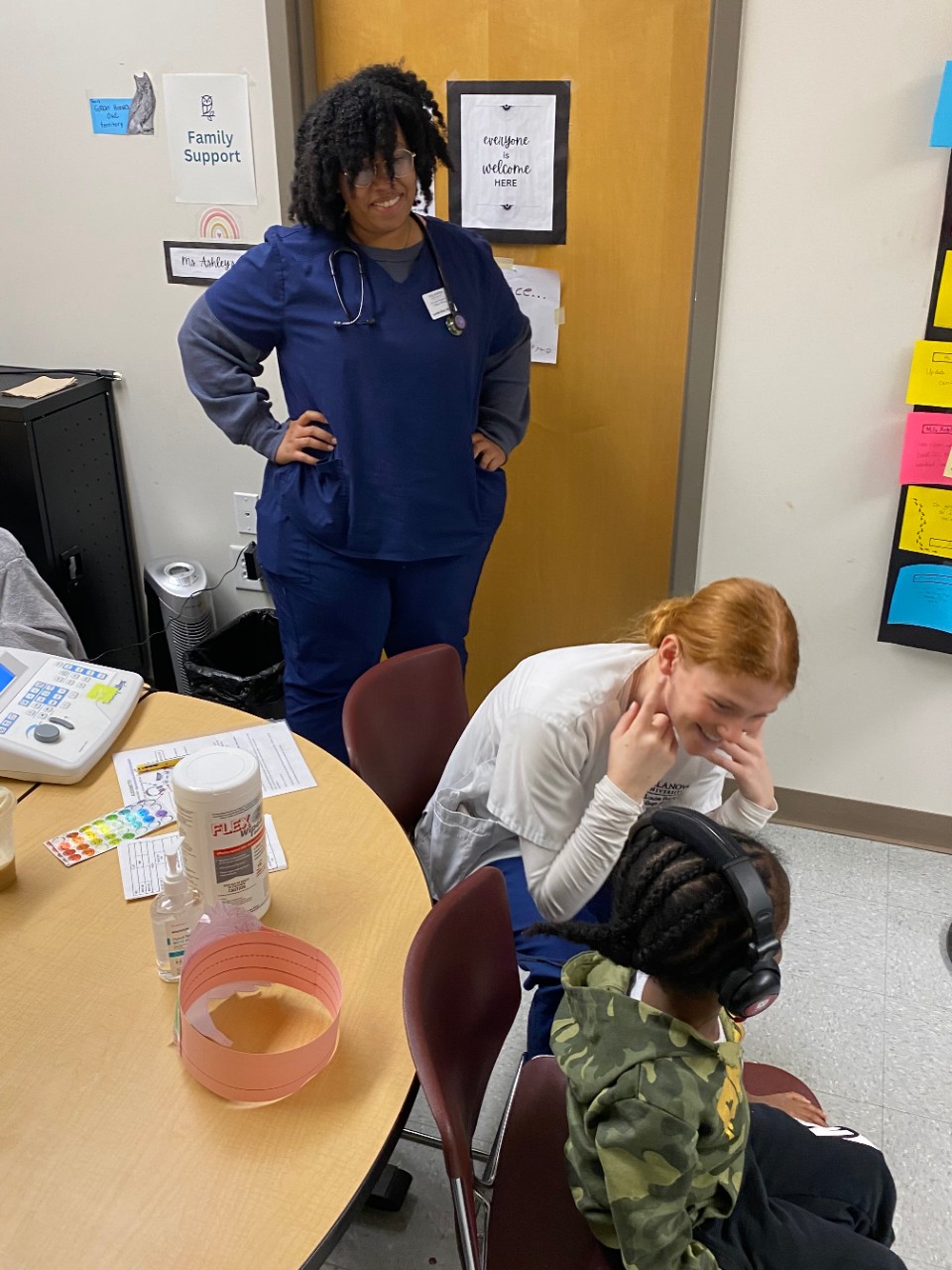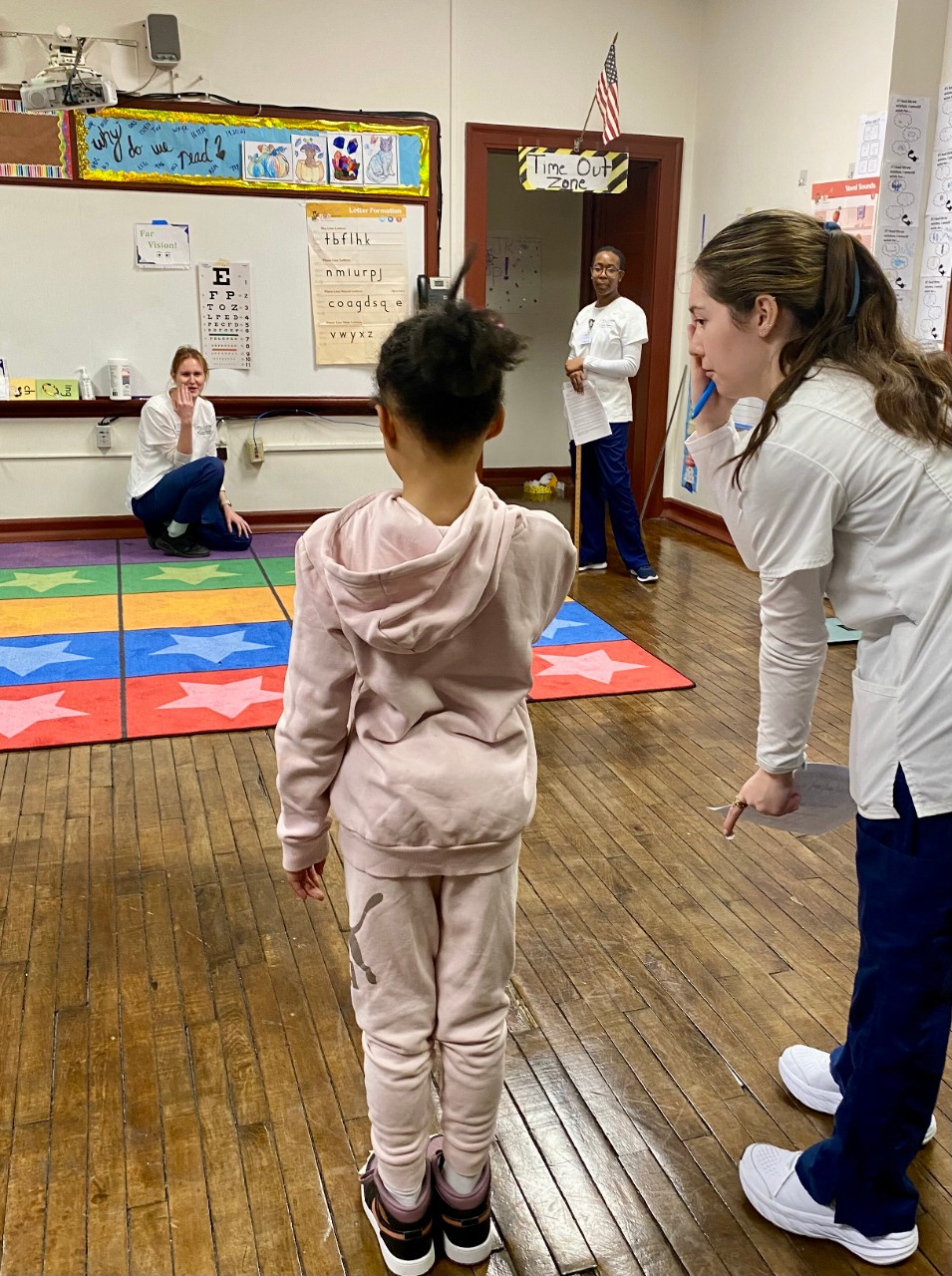Nursing Students Assist Schools with Pediatric Health Assessments

Graduate student Camille Elliot (L) and senior Rosa Marfia (R) perform audio testing at Inquiry Charter School.
Groups of undergraduate and graduate Villanova Nursing students donned their scrubs and carpooled to two West Philadelphia schools earlier this semester to perform state-mandated health assessments on the schoolchildren. In all, 22 Nursing students visited Inquiry Charter School on Friday, Jan. 26 and Belmont Charter School on Friday, Feb. 2, testing approximately 70 kindergarteners through third-graders.
“With the limited number of nurses on staff, schools face challenges in completing this essential testing, and we were glad to help,” said Villanova Nursing Associate Professor Sunny Hallowell, PhD, APRN, PPCNP-BC, a pediatric nurse practitioner, who led the service project.
In early January, Julie Cousler Emig, CEO of Education Plus Health (EPH), a regional nonprofit that works to provide underserved students with access to high-quality health care and opportunities for increased academic performance, asked Dr. Hallowell, an EPH board member, for student assistance with the health assessments.
Dr. Hallowell contacted Villanova’s chapter of the Student Nurses Association of Pennsylvania (SNAP) and quickly assembled a list of students ready to participate and gain pediatric clinical experience.
To prepare her student volunteers, Dr. Hallowell held two training sessions in Villanova’s on-campus Simulation Learning Resource Center (SLRC). She reviewed pediatric screening tests, offered pediatric communication tips and strategies to improve compliance, and created a handbook with instructional videos following guidelines from both the Pennsylvania and Philadelphia health departments.

(L-R) Senior Nursing student Katherine Johnson, junior Tia Wallace and junior Madelyn Schultz assess a student’s vision at Belmont Charter School.
“Screening younger children is a special challenge and an incredible opportunity to learn about child development and communication,” said Dr. Hallowell.
The SLRC’s Kimberly Capagalan, Simulation Operations Technician, and Lisa Ballard, Operations Administrator, built a kit of assessment materials and equipment for the students to take with them, to supplement the schools’ resources.
On site at the schools, the Nursing students worked alongside the school nurses to conduct a variety of screenings. They partnered as “buddies” with individual children, traveling with them through the assessment stations as they measured height, weight and vision, tested for asthma, observed growth and developmental patterns, and conducted audiometry, in addition to practicing pediatric communication skills.
Conducting the health assessments benefited both the schools and the students, says Dr. Hallowell.
“Our Nursing students showed flexibility, innovation and patience with the children,” she said, “and through their service, our students learned more about the how to provide important health services in the community.”
